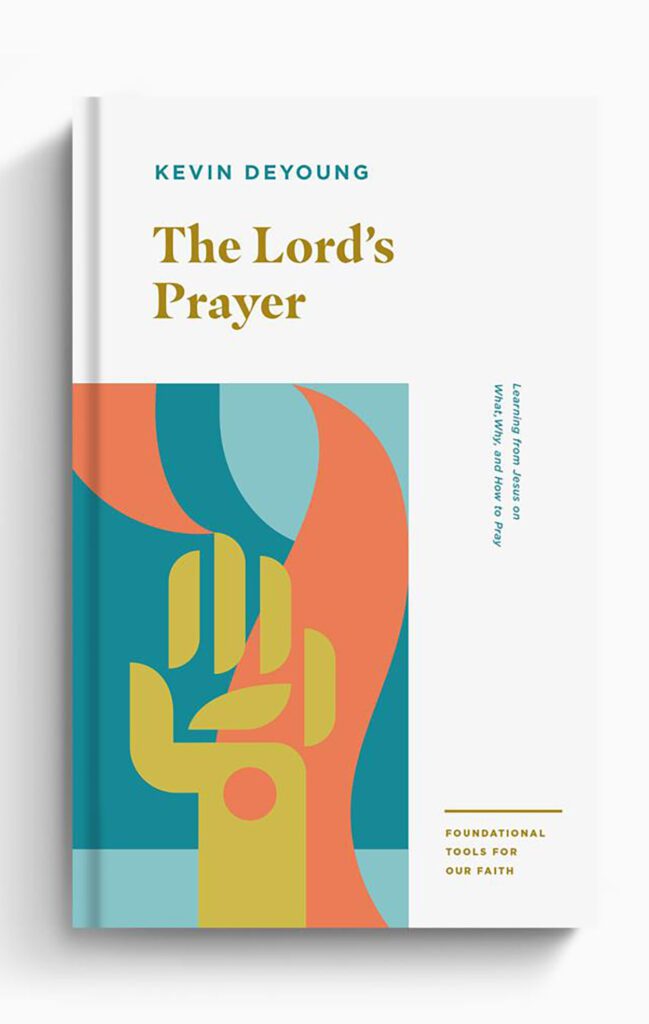⏱️ Estimated Reading Time: 4 min read
When a small group from our church gathers to pray every week, we start by asking God to help us pray. Every Christian wants to pray, and we all ask the same question: How? We know we need help. So, when Jesus says, “you should pray like this” (Mt 6:9), we listen. What we know as The Lord’s Prayer (Mt 6:9-13) is instruction and encouragement from Jesus to his disciples. He teaches us how to pray.
In The Lord’s Prayer: Learning from Jesus on What, Why, and How to Pray, Kevin DeYoung walks through every word of Jesus’s instruction. DeYoung draws encouragement from Jesus’ teaching. You probably struggle to pray, at least a little bit. It’s an area every Christian wants to grow. Rather than hang a cloud of shame over our struggles, DeYoung gives helpful insight to help us pray. He writes, “In prayer, we are not instructing God as much as we are instructing ourselves” (21). Reading this book re-instructed me on some pillars for how we should pray.
Begin with God’s Glory
The first three petitions of the Lord’s Prayer revolve around God’s glory. We pray that his name be hallowed, his kingdom come, and his will be done (Matthew 6:9-10). People love celebrating greatness. Just ask a basketball fan about their favorite player, and you’ll have hours of evidence for this. Beginning prayer this way “makes plain to God our chief desire: to praise him and want all peoples to praise him” (35). When we begin with God’s glory, the fragrance of worship fills our prayers.
Intimacy and Dependence
The first words of the Lord’s Prayer remind us of who we are speaking with in the Lord’s Prayer: Our Father. We are not pushing a claim across the desk of a tired, disinterested insurance agent. Our privilege is much greater. “But to all who did receive him, he gave them the right to be children of God” (John 1:12). In Christ, we have God as Father. Prayer is an intimate conversation between beloved children and a loving father. DeYoung says, “To pray with intimacy to God as father is not a human right; it is a spiritual privilege” (29). We bring all our cares, anxieties, and needs to God (1 Peter 5:7, Phil 4:6-7). Our Father, DeYoung, reminds us, “is not too busy to care, and he is not too impotent to help” (88).
Prayer is intimate, and prayer is dependent. We pray because he loves us and because we need him. Jesus teaches us to ask God for our daily bread (Mt 6:11) – the provision of bread for our physical needs and the provision of “bread from heaven” (John 6:41, 54). To pray for daily bread is not just thanking God for food on the table. “When we… come to this petition day after day, our hearts should be singing that great simple song ‘Give Me Jesus’” (67). He also teaches us to pray for protection (Mt 6:13). DeYoung explains, “We need our Father’s help because we are full of danger within us and stalked by danger around us” (85). All we need for life and godliness we receive from God revealed in the Word of God.
End with God’s Glory
The Lord’s Prayer begins and ends with God’s glory. We don’t move away from God’s glory when we pray for our needs because “he is glorified in our dependence” (58). The Lord’s Prayer, DeYoung says, “teaches us that prayer begins and ends with the glory of God as our chief concern. It expresses confidence in God that he can do all we ask and that he is all we need” (98).
No one excels at prayer by nature. Like most things in life, prayer is something we need good teachers and good tools to help us with. I found The Lord’s Prayer, a useful tool from a helpful teacher. This book will be one I re-read and give to many people.




